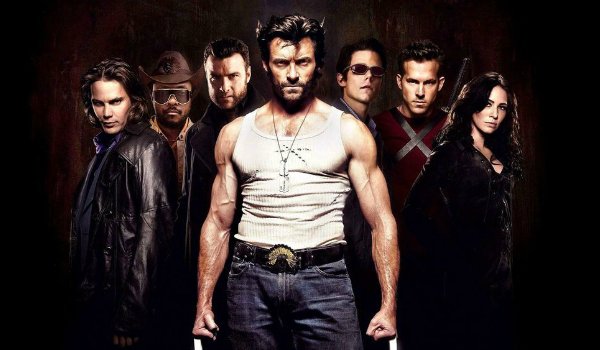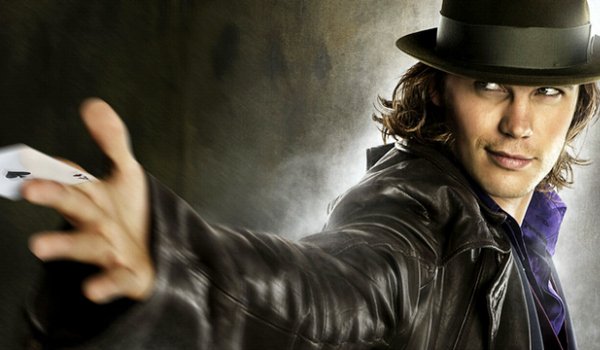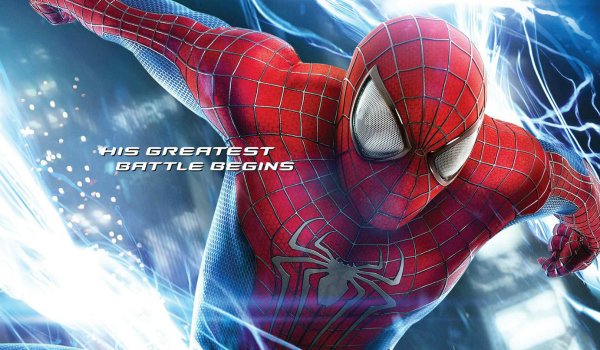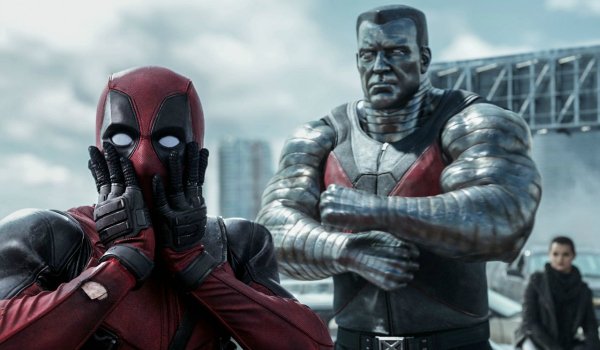3 Huge Lessons Superhero Movies Should Have Learned From X-Men Origins: Wolverine

Whether you love them or you hate them, superhero movies are a major component of the modern movie landscape, with each top studio – from Disney to Warner Bros. and Fox – invested in multiple comic book franchises enveloping various comic book characters. The genre has grown and adapted over the years, allowing standalone films like Bryan Singer’s X-Men or Sam Raimi’s Spider-Man to pass the baton to massive, multi-movie cinematic universes at Marvel and DC.
But the mistakes made by previous superhero movies are being overlooked, and often repeated. For each X-Men: Days of Future Past or a Guardians of the Galaxy, there’s a Catwoman or an Amazing Spider-Man 2 -- films that tanked so hard, they drastically changed the course of a character or series. And it’s troubling that some of the biggest errors committed by failed comic book films of their ilk are being recycled by big-budget tentpoles in 2016. Why isn’t Hollywood learning its lesson?
I was lucky enough to interview director Gavin Hood recently when his fantastic new film, Eye in the Sky, opened the Gasparilla Film Festival in Tampa. Seeing as how Hood directed the notoriously flawed X-Men: Origins – Wolverine, a movie that introduced Deadpool (Ryan Reynolds) to the world – we started talking about the state of superhero films today, and how some of the mistakes he endured are being repeated today. His insights are incredibly valuable, and prove several points we have been making about mistakes current comic book movies continue to make. Such as:

Don’t Introduce Characters For the Sole Purpose Of Setting Up Future Movies
Because those movies might not happen, for reasons you can never predict. One complaint leveled at the recent Batman v Superman: Dawn of Justice is that the Dawn of Justice part of that formula was a little too underdeveloped, and tacked on. We’ve had readers complain that the Flash cameo in Dawn of Justice made no sense, and they don’t want to wait for a future Justice League movie for that scene to pay off. Same goes for the casting of Chris Cooper as Norman Osborn in Marc Webb’s The Amazing Spider-Man 2. Here we have an award-winning actor cast in a supporting role that’s supposedly going to develop down the road. Except… it didn’t.
This was an issue that plagued Gavin Hood’s X-Men: Origins – Wolverine, and studios who were paying attention might have learned that shoehorning characters in where they don’t belong, just to set up movies that might happen down the road, can damage the story a director is trying to tell in his ORIGINAL movie. As Hood recalls:
I liked what you said about looking at Batman v Superman, and so on, and this danger of you know, in [the studio’s] interest of testing the waters, do you screw up the franchise that you’ve got right now? I think there’s a parallel to what happened with X-Men Origins Wolverine, which was originally called Wolverine and then it was shifted during production, and that certainly was something I was not expecting. …The films need to do what they set out to do well. Don’t try… there was a reason I signed onto Wolverine. It was a David Benioff script about a doppleganger, and Wolverine represents that duality of our nature, a capacity for violence and a capacity for compassion within that character. The capacity to unleash the claws and the desire to pull back and withdraw the claws. That’s a great thematic starting point.You can find it, it’s in there, it’s between Liev Schreiber and the brother. But when you go in to meet Gambit, what did we do? Are we trying to be funny now? So the tone goes off, then I remember when we had to introduce Blob and Blob’s going to sit on Wolverine’s face. Wait a minute. I started off making a film about a murder story, about a brother who, in an attempt to bring his doppleganger back to his darker world, darker side, killed his girlfriend. And now a fat guy is sitting on a guy’s face and farting. Come on guys. I’m shooting this? Yes, all of the studio executives came down to make sure that I shot that.
Fox, at the time, was thinking ahead. They wanted Gambit, Blob and Deadpool to be part of this cinematic world. And you can’t blame them. They are fantastic characters, all with huge cinematic potentials. Look how successful Deadpool turned out to be. But they didn’t fit into THIS Wolverine story, and they should have been left out. Will we be saying the same thing about Black Panther and Spider-Man after Civil War? Maybe they belong in that movie. Maybe, though, they’re being introduced to set up their upcoming films.
Your Daily Blend of Entertainment News
That’s not the only mistake being made by today’s superhero franchises. Read on.

Don’t Announce A Release Date Before You Have An Actual Film
The irony of this point is that, as I’m preparing this story to go to press, Warner Bros. adds two more release dates to its already jam-packed slate of DC Comics movies. This means DC/Warner Bros. have 11 movies on tap over the next five years. How many of those movies have scripts? Directors? A cast? Not enough, to be honest. Gavin Hood says this is what happened to him on X-Men: Origins: Wolverine, a movie that was given a May 1 release date while he was still in pre-production:
We had a deadline of a May 1 release. We were the tentpole movie of the year. When I signed on, we were not. When I signed on to the film, we were a $75 million, new Wolverine film. And for whatever reason… I remember getting the call from the senior studio executive, who I won’t name, saying, ‘I’ve got great news, Gavin. We need to up this film to be the tentpole movie next year. We’re going to up the budget, and we’re going to expand the script so that it’s bigger in scope.’ And I’m already in preproduction. And the writer’s strike has happened, and now the studio is scrambling to hopefully find a writer that’s going to up it, and they obviously had some meeting where, who knows, maybe whatever tentpole they planned wasn’t going to happen, and this was going to be it. But there was a fear, for whatever reason, of just focusing on that character [of Wolverine], and so they started to plug in many others.
Gavin Hood’s point, and it’s extremely valuable, is that changes are going to occur – not just on a superhero movie, but on ANY movie. But when you are racing to meet a pre-determined release date, reacting to those changes becomes the equivalent of moving a mountain, or trying to make a sharp turn when piloting a massive cruise ship. No one could have predicted the writers strike when X-Men: Origins needed to make its changes to stay on track for its May 1 release date. What might be the problem when DC tries to deliver its Green Lantern Corps. movie in 2020? Or when Sony dated The Amazing Spider-Man 3 and 4? Planning ahead is fine. Planning too far ahead, and saddling a filmmaker with a set-in-stone date, can be detrimental to the comic book world you are trying to build.
Even Hood understands that, as he emphasized:
It’s not necessarily the studio’s fault that they’re in that situation, because an independent film gets made when the script is ready and the indie guy has managed to raise his money. A studio has to put out X number of films every year. They’ve got a staff, they’ve got all the overhead. They’re in the business of making films and they can’t say, ‘You know what? We don’t have any films this year.’ They have shareholders. So, I think we have to be fair, in so far as we can, of saying, in some ways they make these dates because the machine has to produce products, because the product is made by a corporation with overhead and a staff. So as long as you know that, as long as you understand that, you can better avoid the mine field [as a filmmaker].
You know what else is a big problem studios could have learned from X-Men Origins: Wolverine? Read on.

You Have To Stay True To The Character
There’s a reason why we love these characters in the first place. When you drastically change who they are, as superheroes, to fit a new direction, you run the risk of alienating the fans to whom you are supposed to be catering.
Ask Batman fans how they feel about Ben Affleck’s Caped Crusader killing villains on screen. Ask Superman fans how they feel about Kal-El snapping Zod’s neck at the end of Man of Steel. And then, ask Daredevil fans if they like the current Netflix run that the character is enjoying. If you stay true to what makes the character who he or she really is, fans will reward you with rave reviews and, hopefully, box office returns.
Hood learned this when he altered the approach to Deadpool in X-Men: Origins. And he knows that he paid the price for it:
When [Ryan Reynolds] did the little cameo bit in X-Men Origins: Wolverine, it was exactly what we’ve been talking about. It was the studio attempting to plug in a few characters and test the waters. But now he gets to make his own movie and he did it with great courage and with the full force of his personality, so he deserves every success. I think he’s done really well, and I think it’s fantastic that they had the courage to just go ahead and make the film.
Staying true to the character has helped Iron Man, Captain America, and the NEW Deadpool. It might help Marvel and Sony’s Spider-Man, played by Tom Holland. It might help Gal Gadot’s Wonder Woman when she gets her solo movie. But it’s amazing how many lessons the modern superhero franchises still need to learn… and how many of them can be traced back to X-Men: Origins – Wolverine.

Sean O’Connell is a journalist and CinemaBlend’s Managing Editor. Having been with the site since 2011, Sean interviewed myriad directors, actors and producers, and created ReelBlend, which he proudly cohosts with Jake Hamilton and Kevin McCarthy. And he's the author of RELEASE THE SNYDER CUT, the Spider-Man history book WITH GREAT POWER, and an upcoming book about Bruce Willis.
